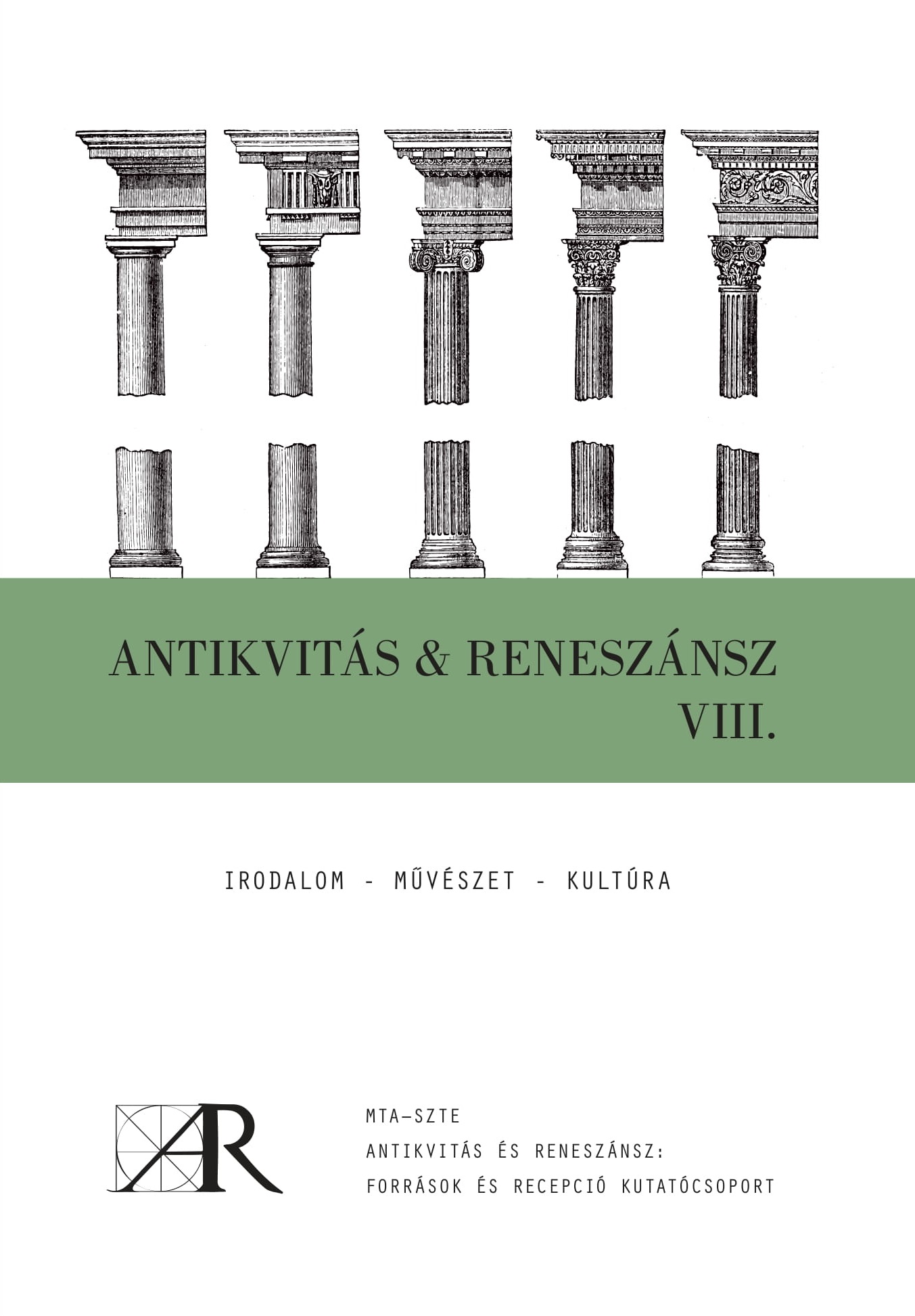Amor est passio: Reception of the De amore manuscripts in the 15th century German territories
Main Article Content
Abstract
The love dissertation De amore was written in the 12th century in a clear French setting, in the courtyard of Marie de Champagne, for a French audience, but also in Latin. The De amore does not appear on German territory in either the 13th or the 14th centuries, but it makes its way there in the 15th century. The presence of the theoretical dissertation can be justified not only in traces, but on the contrary: it is present from the beginning to the end of the century, it occupies a significant place in knightly-didactic poetry. In my study, I present the reception of the treatise in German territories, based on the codices I have examined so far.
Article Details
How to Cite
Havas-Kovács, D. (2021). Amor est passio: Reception of the De amore manuscripts in the 15th century German territories. Antikvitás & Reneszánsz, 4(8), 37–56. https://doi.org/10.14232/antikren.2021.8.37-56
Issue
Section
Tanulmányok
